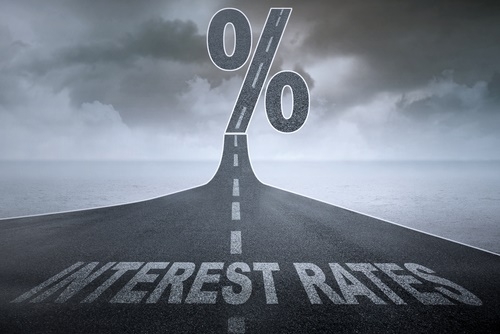
By Roger J Kerr

The rapid sell-off in the New Zealand dollar exchange rate against the US dollar over the last few weeks (when other currencies have generally been stable against the USD) has resulted in sharply lower NZD cross-rates to the AUD, EUR, GBP and JPY.
As a result the overall value of the NZ dollar (the Trade Weighted Index – TWI) has plunged 5% from 80.0 to 76.0 over a very short space of time.
The higher TWI over recent years has been a major contributor to the very low annual inflation rate (along with lower fuel prices) as imported consumer goods have generally moved down in price.
Times are now a’ changing with the TWI plunging to the lower levels within a week compared with what the RBNZ assumed would happen over the next 12 months.
Importer currency hedging means that there is a six to nine month lag in higher consumer prices to the current currency depreciation.
If the TWI stays at these lower levels, the RBNZ and the market may well find the CPI increasing to above 2.00% a lot sooner than everyone expected.
The implications for the OCR and mortgage interest rates is obvious.
Off course the RBNZ have been calling for a lower exchange rate for some time and they are now finally getting some traction as US interest rates increase well ahead in timing of any official NZ interest rate increase.
However, the RBNZ may themselves be a little surprised at the speed of the current exchange rate depreciation, potentially lifting the annual inflation rate a lot earlier than their forecast models suggest.
Long term interest rates will continue to increase over coming months as US bond yields only go one way (higher) due to the Fed lifting short term interest rates, stronger US economic data and therefore higher US inflation.
One of the risks for the US bond and equity markets is that the Trump administration continue to delay with the detail for the infrastructure investment and tax cuts.
Ultimately the financial and investment markets may become frustrated and impatient with the delay causing a correction the other way in both markets.
Daily swap rates
Select chart tabs
Roger J Kerr contracts to PwC in the treasury advisory area. He specialises in fixed interest securities and is a commentator on economics and markets. More commentary and useful information on fixed interest investing can be found at rogeradvice.com
7 Comments
One of the risks for the US bond and equity markets is that the Trump administration continue to delay with the detail for the infrastructure investment and tax cuts.
The American Society of Civil Engineers (ASCE) has released a report indicating that it will take $4.59 trillion to improve America’s infrastructure grade from a D+ to a B. Read more
Frankly , I would not mind a bit more inflation , the effects would hopefully be that interest rates would go up and we would start getting a decent return on savings
Not to mention that it would have a dampening effect on asset prices ( like houses)
that and risk return would come back into the equation, we would get back to a more normal world
I'm concerned that, with the high amount of debts by individuals, companies & governments, rising interest rates (say 2% higher than present), will lead to a significant reduction in consumer spending, which will lead to Company insolvencies, bankruptcies, and employee layoffs en masse, add mortgage defaults in a falling real estate and share market and we get ... blood on the streets.
I'm happy to hear counterpoints to my view
.. the way you describe it ... it actually sounds quite exciting ... and an absolute boon for property and sharemarket bottom feeders ... go go go time for the first home buyers ... for those who actually live and work in this country ....
Bring it on ASAP !
Consider a property recently purchased for $600,000 with a 20% deposit borrowing $480,000 at 5% - interest cost approx $12,500 pa, an increase to 6% increases monthly interest cost by $250 which reduces discretionary income at 7% it may leave a negative amount of discretionary income. Even at this level Yvil there will be serious problems for many, in Auckland at higher borrowing levels there may well be blood on the streets.
I always enjoy one of Roger's predictions on inflation/interest rates. You have have to admire his tenacity-being wrong most of the time just doesn't daunt him-though I would love to know what his clients think.

We welcome your comments below. If you are not already registered, please register to comment
Remember we welcome robust, respectful and insightful debate. We don't welcome abusive or defamatory comments and will de-register those repeatedly making such comments. Our current comment policy is here.